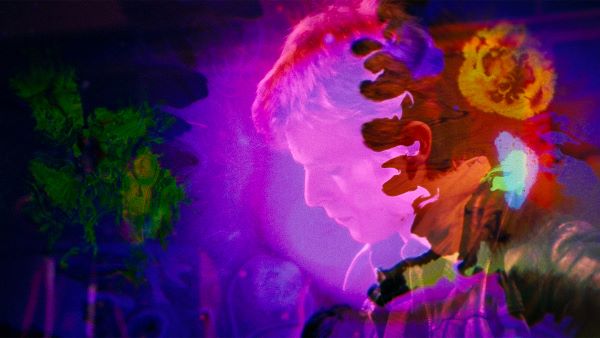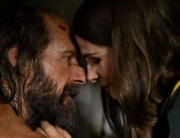Writer, editor, producer, director Brett Morgen has come up with an unusual angle for his documentary love letter to David Bowie. It’s a blast of wall-to-wall music from the musician-turned-Renaissance man’s 50-year career, becoming akin to a rock concert—his anthemic “Heroes,” for one, is heard in its entirety—accompanied by Bowie’s omnipresent philosophy on art and life. Morgen’s reverential approach is similar to the 2021 documentary The Sparks Brothers, on that band’s varied, multidecade career, which also featured songs without cuts.
In interviews culled from the beginning to the end of his career, Bowie’s views are consistent, whether he took on the persona of Ziggy Stardust (an “alien rock star,” in his words), the Thin White Duke, or the mainstream concert king of the 1980s. Given his discography covers quite an extensive catalogue, not all of Bowie’s notable works have made the final cut. (Sorry, but there is no “Golden Years” nor much of the final decade of his output.) Still, 48 tracks are heard here. Additionally, the director salutes the artist’s creative ventures beyond music. Viewers have an opportunity to see much of his (remarkable) paintings, solitary portraits in the style reminiscent of the German artist George Grosz, and his acting stint as the title character in The Elephant Man on Broadway.
With the cooperation of the musician’s estate, Morgen has created a free-form visual and aural stimulant, a collage of Bowie interviews, concert tour performances, landmark music videos, and his many movie appearances, often layered with Pop Art-ish animation and 1960s psychedelia, as well as nearly 100 movie clips—often fantastical—which include Metropolis, The Wizard of Oz, and the works of Georges Méliès and, oddly, Leni Riefenstahl. (Yes, she was a trailblazer like Bowie, but….)
A standard biography this is not. Fans will need to fill in the biographical gaps, and newcomers will crave more information. Bowie’s first marriage is barely mentioned, and his son not at all, though he reveals some about the mental health of his half-brother Terry, a rare admission about his family’s history. Yet it’s refreshing that Morgen eschews the pattern of many music documentaries. There are no personal or professional valleys from which his subject needs to recover from—his bout with drugs in the 1970s remains off screen. Perhaps the closest to a professional blowback is the critical response to his commercial success in the 1980s with dance pop. The unflappable Bowie affably agrees that a song like “Let’s Dance” is “simple.”
Bowie briefly becomes more personal when he recalls falling in love and marrying the model Iman. Yet the overall effect of his articulate and voluble voice-over becomes a one-way conversation that loops around similar subjects. It’s less a conversation and more of a lecture, given that he’s not challenged or contradicted as Morgen lets him pontificate. His grounded statements about creativity, “Art is about searching” or “Go a little bit out of your depth,” and on life (“It’s what you do in life that is important, not how much time you have or what you wish you’ve done”) come across as banal, especially when taken out of context. Repetitive clips from the 1984 documentary Ricochet, filmed during the star’s concert tour in Asia, also won’t dispel the sense of sameness. Although the time line is in chronological order, Moonage Daydream doesn’t know when to end. At two hours and 14 minutes, the onscreen celebration flattens: The party lasts too long.
Emphatically made for diehard Bowie fans, Moonage Daydream will be released in IMAX theaters by Neon this fall.







“At two hours and 14 minutes, the onscreen celebration flattens; the party lasts too long.”
Well, in fairness, that’s the point at which the onscreen celebration concludes; that’s the end of the movie. Everything after that point is real life and probably shouldn’t be included in your review, which should probably restrict itself to just what happens within the confines of the opening and closing titles of the movie. ;P
Just kidding, of course. Great and honest review of a film that is apparently both too much and not enough of a good thing, presumably in *exactly* the wrong places. Thank you for your keen insights!